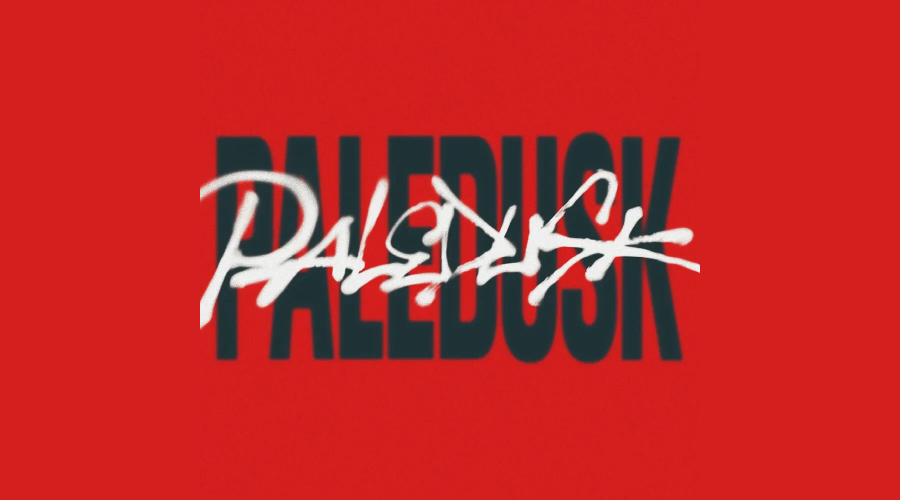As anyone who's been in therapy long enough can probably tell you, progress comes in many forms. Some more apparent than others. Across the ten56.'s debut EPs, Downer: Part 1 and Part 2–later compiled into the LP Downer along with a new song, "Choky" and a remix of "Truamadoll"–lead singer Aaron Matts (ex-Betraying The Martyrs) sings about addiction, failed relationships, his deteriorating mental health, and, most frequently, the desire to end it all. On IO, the French nu-metalcore supergroup's first proper album, Matts lyrics have expanded in scope. Now, as explored in the song "Pig," he wishes his father were the one taking his own life. For a guy who named his band after the police code for suicide, that's some kind of progress. Fortunately, the band has only grown more confident and assured as a unit, resulting in a more fully realized batch of songs.
Right off the bat, "Doormat," with its skittering electronics and cavernous drums, announces this as a more ambitious endeavor. Produced primarily by guitarist Luka Rozaka, the album features stronger, better integrated electronic touches and a more defined guitar sound. Hear how the screeches and chimes in the verse of "Doormat" twist into a carnival-esque melody during the bridge, heightening the sense of psychological distress. The moody intro and verse of "Pig" give way to a pummeling chorus given sharper edge by the synths buried underneath. The first big surprise of the album comes in "Snapped Neck," the band's most recent single, where the warring sides of Matts' psyche–a recurring theme–manifest dueling clean and guttural vocals in the chorus. Seemingly determined to take everything to the extreme, the song mixes Matts' most melodic signing with his most mangled vocal performance up to this point.
The vocal performances on this record are much bolder, and much more experimental throughout. Another left turn, the sunnily tongue-in-cheek interstitial track "LIFEISACHORE.MOV" highlights the album's theme of wishing to eliminate emotions all together. The adroit mix of guitars and digital terror continues on track like "Good Morning," "Pty Fck," and "Earwig" while "ICU" finds the band hitting a creative peak when the line "I feel sick" gets literalized in an instrumental break built on the sound of retching.
What really distinguishes this record from ten56.'s previous work is an improved sense of songcraft. Often, tracks on the Downer EPs played more digitally chopped guitars welded onto spoken word pieces in ProTools. IO finds the band utilizing more slightly more traditional song structures to great effect. The band is not afraid to use repetition (see: the first verse of ICU) or even the occasional chorus to underline their point. The result is a more focused, more satisfying platform for their ideas. These more clearly defined also show the bands new confidence in letting the music further express what's in the lyrics. "I Know Where You Sleep," already the shortest actual song on the record, finds room for a back half that blurs the lines between breakdown and outro. In fact, "Good Morning," "Earwig," and "Friends" all gain impact from their intro sections, alternately furious, frenzied, and frazzled, respectively.
If the shift in thematic aims feels like less of a step up, the techniques applied therein more than make up for it. Dark flashes of wit help elevate the lyrics above what came before. Note the simple but effective wordplay in "ICU" where "ICU" and "I see you" interchange, or the way "one," "zero," "five," and "six" form a sort of caustic acrostic in "Banshee" that delves deeper into Matts' past than any song on the Downer releases. Something as simple as fewer and more judicious uses of the word "bitch" speaks to a more thoughtful, varied approach this time out. "Earwig" even quotes Carly Simon! And there's something undeniably French about a line like "Five bodies in my basement, rotting but six / If you really wanna play that game." Luckily, the self-awareness of tracks like "Diazepam" and "Saiko" is readily apparent as Matts reflects not just on his personal issues but how those same issues become fodder for his music.
And yet, in the album final track, the band sets aside all obfuscation, lyrical, digital, or otherwise. "IO," from which the album derives its title, is the biggest departure. Rapped with completely clean vocals over clean guitars and topped off with a melodic chorus, the song is Matts at his most direct. Crystalizing the album's more song-based approach, the track works as well as it does precisely because it embraces a simple verse-chorus-verse construction. Nakedly emotional, the track finds Matts examining his problems but also, possibly, turning a corner.
Rather than sanding off the edges, ten56.'s improved songwriting and production has allowed them to hone their attack. It's still stupid heavy, they've found ways to make it darker, harsher, more affecting. That's progress.
IO is available now via Out of Line Music.










